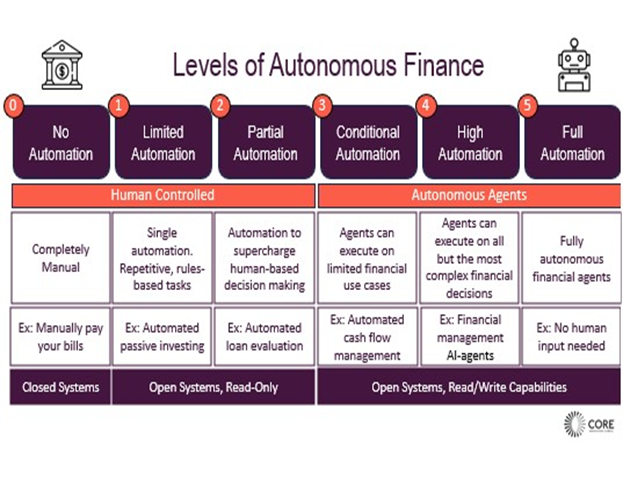We believe the American playbook for wealth creation — go to college, work hard, buy a home — is dead. It doesn’t work anymore for the majority of Americans. Labor costs and productivity grew in lockstep from 1940 to 1979. Since then, income for a typical worker has increased 12% while productivity has increased 70%. As a result, the majority of wealth has been created from capital gains, making it almost impossible to create material wealth as a function of working hard. American assets increased by $67 trillion in value since 1989, but 78% was driven by financial investments, leaving the bottom 40% still below 2007 wealth levels in 2020.
At Core, we want to help rewrite the playbook for wealth creation. We hypothesize here how an entirely new asset — data — could play a role in the very near future. FAANG (Facebook, Apple, Amazon, Netflix and Google) have staged a technology coup over oil and banking to become among the most valuable companies, largely on their use of data. In 2001, Google’s advertising revenue totalled $70 million. This grew to $134 billion in 2019 because marketers understood how much value there was in predicting consumer behavior. FANG (Apple is an exception) used these predictions to create over $1 trillion in highly concentrated market capitalization. As you can see, while ad revenue and share price for big tech exponentially increased over the last decade, the purchasing power of consumers remained stagnant.
Two years ago, a New York Times story on the relationship between Facebook and Cambridge Analytica brought to light the vast, and sometimes unethical, ways that companies profit off of consumer data. Facebook had allowed, and profited from, Cambridge Analytica collecting data on millions of unknowing Facebook users to create personality profiles ahead of the 2016 election. Consumers felt taken advantage of — correctly so. Since then, lawsuits against big tech companies are compounding, and distrust has never been higher. 80% of Americans are “somewhat” or “very” concerned about how companies use their personal data. Facebook faces a revived lawsuit for tracking users after they exited the site, and Google faces a class action lawsuit filed just two months ago based on Chrome’s Incognito mode allowing websites to gather information on users.
What if data could be harnessed as a benefit to consumers instead of a threat? What if consumers could monetize their own digital data exhaust? In addition to our time (labor) and our capital, could data become an asset, a form of income for most Americans? As we’ve written about before, it’s expensive to be an American. If the dollar value of our data can be transferred to consumers in new and innovative ways, data has the potential to help relieve a portion of the crushing financial burden on low- to middle-income consumers.
How much are we talking about? Robin Door breaks down the value of data to different stakeholders, such as advertisers, hackers, and credit score agencies, estimating $2-$3K in value per person each year. Another way to assess the value of data is to measure how much money users would demand for their data if they had the option to share it (their “willingness to accept”). A Harvard study found that people demanded about $1K for their data if they had the option to share it. These estimates are up 10x from a decade ago. And as the power of data expands through alternative use cases such as AI and machine learning, these estimates will soon be too low. Either way, when financial services cost low-income consumers 44% of their annual salary, savings or potential revenue in the thousands of dollars could really add up.
Global regulatory trends support the democratization of data
The democratization of data will have the tailwinds of regulation behind it. The California Consumer Privacy Act (CCPA), which took effect on January 1st, 2020, will completely shift the landscape for U.S. companies looking to profit off of data. The CCPA was the first major data legislation in the U.S., following in the footsteps of the General Data Protection Regulation (GDPR) in Europe, which came into effect in 2018. Both GDPR and CCPA permit users to see what personal data has been collected, to request companies delete that data, and to opt out of companies selling that data to third parties. Companies must require consent to collect cookies.
We believe this is a secular trend. While the New York Privacy Act did not pass in its initial form, the bill argues for the rights of New Yorkers to sue companies directly over privacy violations and requires businesses to act as a “data fiduciary,” an idea that “would legally bar businesses from using data in a way that benefits their companies to the detriment of their users.” The bill shines light on how future regulation can go even further than the CCPA in empowering consumers with control over their own data. Andrew Yang’s Data Dividend project gained media recognition, but also scorn for merely being a tax on data. While a federal bill hasn’t passed yet, it seems inevitable.
Policy is not just coming from the regulation, but from inside of companies as well. In a move that shows the secular transition to increased privacy, iPhone users will now have control of their Identifier for Advertisers (IDFA) and will receive notifications when an app wants permission to track them, allowing the user to “allow tracking” or “ask app not to track” (although this deployment was postponed to next year). Even Google now allows users to download their own data, but also plans to phase out third-party cookies from Chrome by 2022, a move that will dramatically alter the world of online advertising and advance the shift to first-party data (i.e. data collected directly from the consumer versus third party companies/websites). Big brands, such as Unilever, Coca-Cola, and Hershey, have applied pressure on Facebook to be more responsible with their data. We believe this new wave of data responsibility is here to stay and will define the future of data aggregation.
How can everyday people benefit?
Of course, we already do. We’re writing this in Google Docs, free, finding references for free, etc etc. But our view is that first-party data will become even more of an asset for everyday people. In addition to data dividends, others have suggested “data labor unions” and “minimum data wage.” Tim Berners-Lee’s Inrupt wants to give users a personal data “pod” in which they could give and revoke permission, perhaps for a profit, to applications to read and write in their pod. Fetch Rewards and iBotta give consumers cash back and rewards for taking pictures of receipts, i.e. turning over spending data. A next gen will automate this. Brave, the web browser, gives users cash back to allow targeted ads. BigToken rewards users with cash for taking surveys and opting in to connect other data that can later be purchased by advertisers. 50% of BigToken’s users have incomes of less than $30K, and over 75% of users have incomes of less than $75K. BigToken’s super users make $100+ a month on the platform, nothing to sneeze at if you’re netting $1500 per month.
Klover, a Core portfolio company, is focused on making data a personal asset. Its first application is to give people access to free cash “boosts.” Its vision is to empower others to provide real value for free, if not literally share data proceeds with the end user. Think insurance: Insurance costs low-income consumers a whopping 22% of their income. Think basic banking: Why pay $32 billion in overdraft fees or monthly subscription fees? We believe this shift is inevitable.
David Roos is a VP on Core’s investment team. Thanks to Kristoffer Nelson of BigToken, Brian Mandelbaum of Klover and Matthew Shackelford for their tremendous insights.




